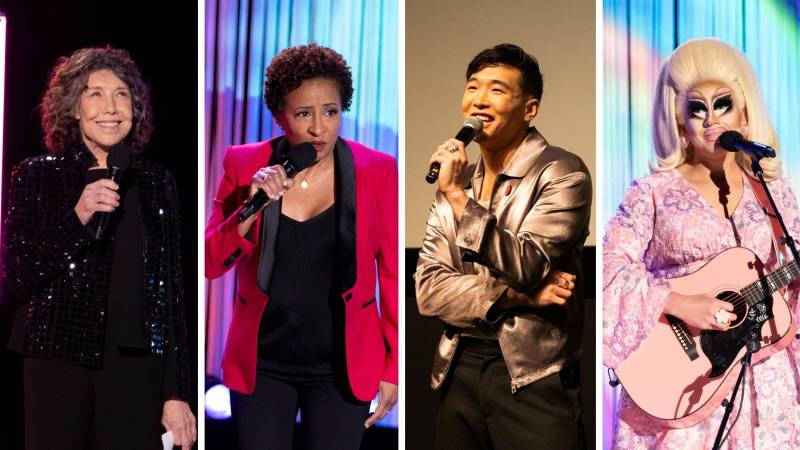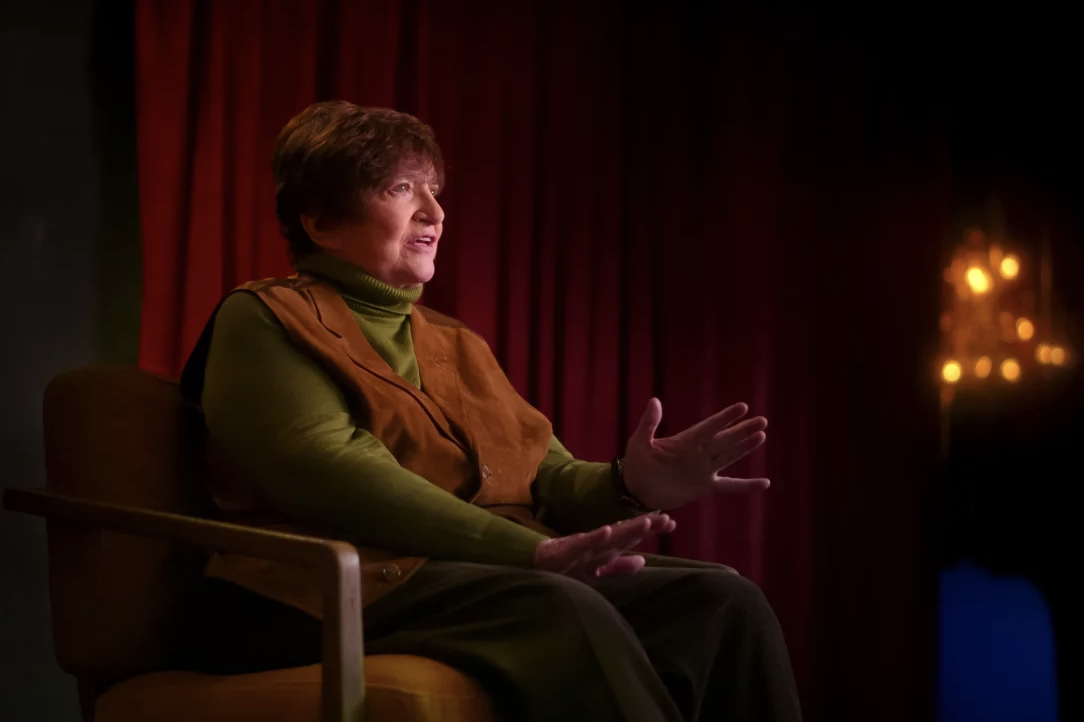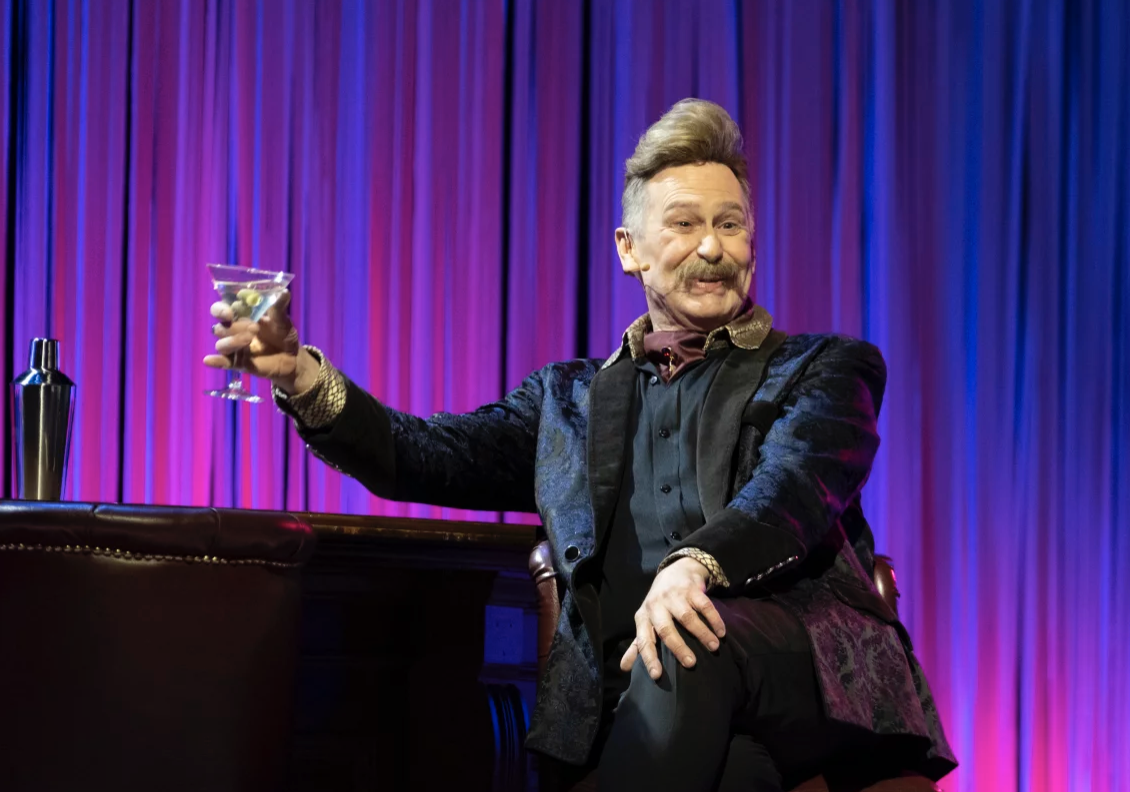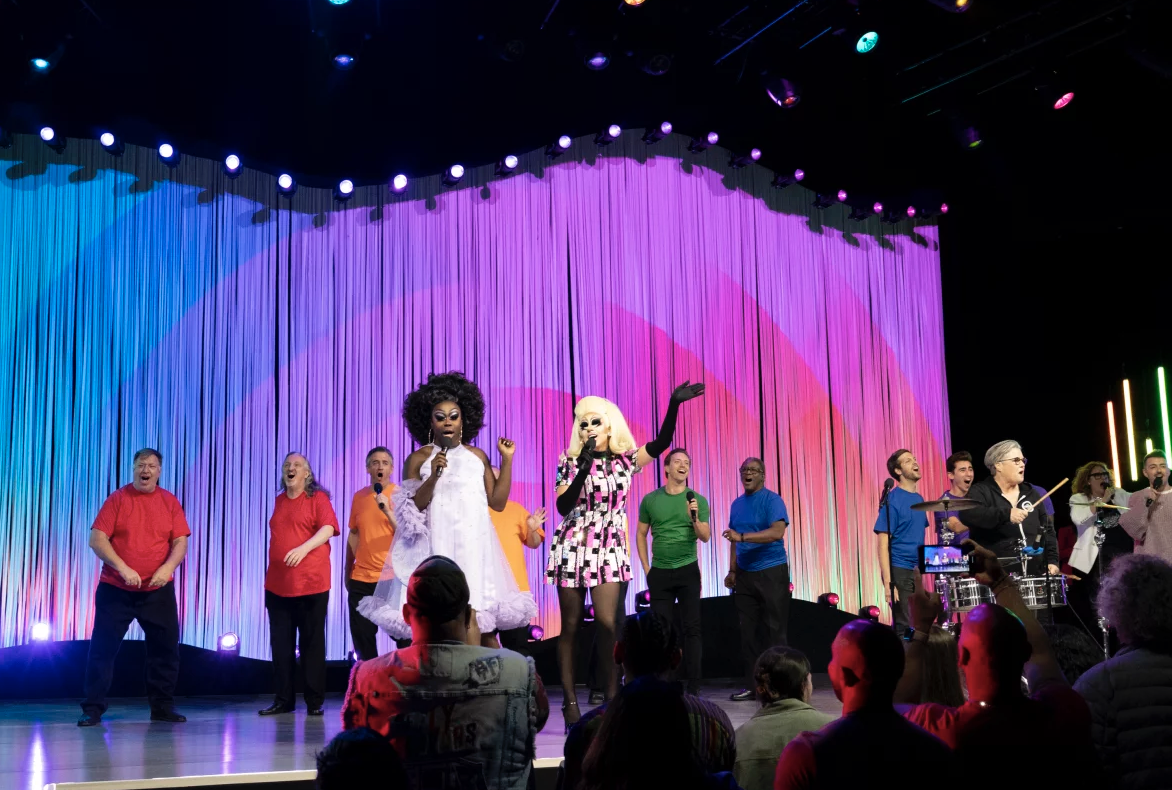“Comedy’s always a reflection of the culture, good and bad,” says Page Hurwitz. Her new Netflix documentary about the history and current state of LGBTQ comedy is proof. Through archival footage, performances and interviews, Outstanding: A Comedy Revolution spans nearly a century of LGBTQ comedy, including the milestones and setbacks for queer comedians pursuing careers making people laugh.
‘Laughter Is Disarming’: A New Documentary Traces Generations of LGBTQ Comedy

A multigenerational who’s who of comedy fills this documentary. Lily Tomlin, Rosie O’Donnell, Eddie Izzard, Sandra Bernhard, Billy Eichner, Fortune Feimster, Tig Notaro and Solomon Georgio are among the many performers who recount their personal stories of developing their comedic styles and grappling with homophobia.
Hurwitz began her career doing stand-up in the late 1990s in San Francisco’s Castro district. Today, she writes, produces and directs comedy specials and TV series. When she started putting the documentary together, she knew there was something she had to get right: “We’re the gays, so I wanted to make it dynamic. There’s nothing worse you could be than banal.”
To ensure her documentary had some dazzle, Hurwitz organized a massive event at the Greek Theatre in Los Angeles featuring a marquis lineup of LGBTQ comedians. She turned the event into its own special for Netflix and interspersed footage from it throughout the documentary.
Among the revelatory moments in Outstanding are interviews with comedians who might’ve been more famous had they not come out.
Robin Tyler, one of the first comedians to come out on national television, says she was never in the closet. “Closets are vertical coffins,” she declares in the film. “All you do is suffocate to death.”
Tyler’s comedy career suffered when she included jokes about Anita Bryant in her act. Bryant, the former beauty pageant winner, singer and Christian, was one of the most active voices in the anti-gay crusade. One such joke declared that Bryant “is to Christianity what paint-by-numbers is to art.”
“That’s why no one knows her name,” says Hurwitz of Tyler, “And she should be a household name because she’s so funny and so talented.”

Hurwitz and a small staff pored over hundreds of archival performances and news footage to show how, from one decade to the next, queer comedians either made strides or suffered, depending on the political and cultural climate of the day. There’s Moms Mabley playing an openly gay character in a movie from the 1930s and the so-called Lavender Scare during the Cold War.
As comedian Scott Thompson puts it in the documentary, “I just thought life can change on a dime and society can change on a dime.”
Thompson points to an “embrace” of gay culture in the 1970s — think disco and Village People — to a complete about-face in the 1980s with the AIDS epidemic.
“It went back 30, 40 years, instantly, almost overnight,” he says. “Gay men in those days were considered vile.”

“Comedy at that time was incredibly homophobic,” says Hurwitz, “and we had a lot of well-known comedians who were choosing to turn that tragedy into fodder for their hackneyed comedy acts. So, whether it was Andrew Dice Clay or Sam Kinison or frankly, for that matter, Eddie Murphy.”
But comedians know how to counterpunch and during the AIDS crisis, Sandra Bernhard’s politically charged, cabaret-style performances were a force. As she explains in the documentary, “This became like the next wave of having to be there and jump in full throttle.”
Comedian and actor Joel Kim Booster, who’s interviewed in the documentary, says he was “floored” when he saw the final cut of Outstanding. He says it made him grateful to all of the queer comedians who blazed a trail for his generation. “We were not the ones who busted down the door. We just walked through it,” he says.
Outstanding shows how there are still challenges for gay performers, most significantly transphobic material by big-name comedians. But Page Hurwitz says that LGBTQ comedians will continue to take the stage, make people laugh and change the culture.
“You’re sharing who you are with the audience and it’s so powerful,” she says, “because laughter is disarming. You make the personal universal, so we can realize that actually, we’re more alike than we are different.”

The audio and digital versions of this story were edited by Ciera Crawford. The audio story was produced by Isabella Gomez-Sarmiento. The digital was produced by Beth Novey.

